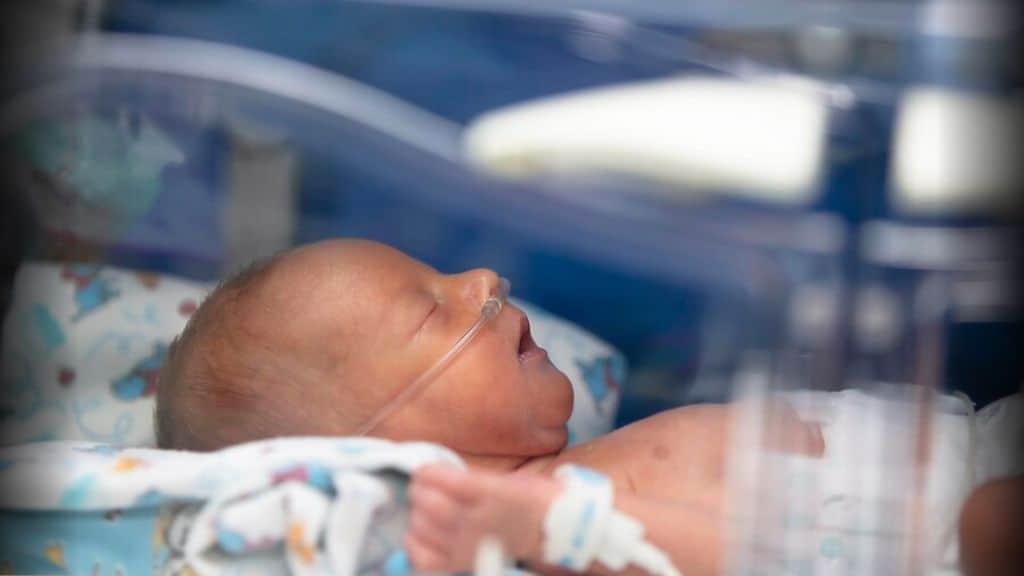
Parenthoodbliss selects the best products based on real-life testing conducted by our staff, members of our user community, the contributors, as well as through research and feedback by experts; here’s more about our product review process. The details and prices are accurate as per the publishing date and we may earn commissions through the shopping links on this blog.
Table of Contents
Pregnancy can be tough on women and taking care of a premature newborn is another hustle to take upon. An average pregnancy lasts 40 weeks. Premature or pre-term babies are those who are born before the 37th week of pregnancy. Because of advances in medicine, more than 9 out of 10 premature babies can live and grow up normally.
Developmental issues are more likely to occur in most premature babies. It is normal for babies born at 23 to 24 weeks to get by, however, they are at a more serious gamble of unexpected problems.
A lot of babies born before 32 weeks and weighing less than 2.5 kilograms may require medical assistance to breathe. Typically, they will be cared for in a neonatal intensive care unit (NICU) until they are mature enough to live independently. A special care nursery (SCN) may be required to provide care for babies born between 32 and 37 weeks.
Why are Babies Born Prematurely?
Premature birth is frequently undiagnosed. However, some of the causes of premature birth include problems with the placenta, such as
- Placental insufficiency
- Placenta previa
- Placenta accreta
- Placental abruption
- Premature rupture of membranes
Premature labor symptoms include:
- A sudden decrease in your baby’s movements pressure in the pelvis as if the baby is pushing down cramping in the lower part of the belly
- Diarrhea
- Nausea, or vomiting
- Constant lower back pain
You should also contact your midwife or doctor if you experience swelling in your face, hands, or feet, as well as double vision, blurred vision, or other eye disturbances. These symptoms also indicate preeclampsia, a common cause of preterm births.
What Should I Do If I Exhibit Signs of Premature Labor?
Contact your doctor or the nearest birthing center as soon as you notice any of the symptoms of preterm labor if you are less than 37 weeks pregnant. The labor could be slowed down or stopped. The more time your baby spends in your womb, the better their chances of success are. A hospital with a neonatal intensive care unit (NICU) or a special care nursery (SCN) is the best place to go if your labor begins prematurely.
You will probably have an ultrasound or a pelvic exam at the hospital. The medical team will keep an eye on your baby and determine whether your cervix has begun to open in preparation for labor.
You may receive medication to temporarily stop the contractions while you are in labor. Corticosteroid injections may also be given to you 12 to 24 hours before birth. Steroids will lower your baby’s risk of complications associated with premature birth, such as breathing issues.
It is possible to deliver premature babies quickly via vaginal birth. However, the doctor might decide that having a c-section is best for your baby’s safety. The medical team might use special equipment, like a neonatal resuscitation bed for your baby. They might give your baby medicine or an oxygen mask to help them breathe. Adrenalin injections or cardiopulmonary resuscitation (CPR) are needed to keep some babies’ hearts beating. Your baby may be moved to the NICU or SCN once they are stable.
When Can I Hold My Premature Baby?
The medical condition of your baby will determine when you can hold them. You might be able to hold them on the day of their birth, but you might have to wait a few days or weeks until they are stable enough for you to hold them. The maternity staff will help you do kangaroo care or hold your baby, as soon as you are able. This is important for your baby’s health and well-being.
Will I Be Able To Nurse My Premature Baby?
You will be asked to start expressing breastmilk shortly after your baby is born. Antibodies and nutrients that are crucial to your baby’s health and development can be found in breast milk. If your baby is unable to breastfeed at first, they may be given breast milk through a feeding tube. But you can help your baby learn to breastfeed in a few ways:
- As soon as it is safe, you should hold your baby skin to skin. This can help your baby feel safe and increase your milk supply. Skin-to-skin feeding can help get you and your baby ready to breastfeed.
- You might notice your baby becoming more alert, sucking on their fingers or lips, and moving closer to your breast when they are held skin-to-skin. These are indications that your infant might be ready to eat.
- When they start to breastfeed, babies in the neonatal intensive care unit typically go through several stages. They might begin by nestling and licking your areola. After that, they might move closer to your breast and give you a few sips. They’ll start sucking more and swallowing for longer periods as they get older.
It may take some time for your baby to learn to breastfeed successfully if they are very premature or ill. The staff will talk to you about formula feeding if you don’t want to breastfeed or don’t make enough milk.
How Will My Premature Baby Look Like?
Most of the time, babies born between 36 and 37 weeks look like small full-term babies. Very premature babies will appear to be very fragile and small enough to fit in your hand.
Skin: Your baby’s skin may appear shiny, translucent, dry, or flaky because it hasn’t developed fully. There may be no fat under your baby’s skin to keep them warm.
Eyes: In most premature babies, the eyelids may initially be fused shut. They should be able to respond to various sights by 30 weeks.
Premature growth: Your premature baby may not be able to control their temperature, breathing, or heart rate. They might jerk, become stiff, limp, or lose their ability to remain alert.
Hair: Although your baby may have little hair on its head, it will have a lot of “lanugo,” or soft body hair.
Genitals: Your premature baby’s genitals may be small and undeveloped.
When Will My Premature Baby Hit Their Milestones?
Premature babies frequently face the following problems:
- Breathing issues
- Heart issues
- Digestive issues
- Jaundice
- Leukemia
- Anemia
- Infections
But do not worry because the majority of premature babies will grow normally. They are more likely to have developmental issues, so they will need regular health and developmental exams at the hospital or with a pediatrician. Do not hesitate to talk to your doctor if you’re worried about your child’s growth.
The following issues may develop later in children born prematurely:
- Language delays
- Problems with growth and movement
- Problems with teeth
- Problems with vision or hearing
- Social and emotional issues
But as long as you understand your premature baby’s “corrected age” you can know whether they are developing normally or not.
What is The Corrected Age of a Premature Baby?
A premature baby’s chronological age, i.e., how long ago they were born, is subtracted from the number of weeks they were born early to get the corrected age. For instance, a baby who was born two months prematurely and was six months old would have a corrected age of four months.
This suggests that they may be engaging in activities similar to those of other 4-month-olds. When evaluating your child’s growth and development, the majority of pediatricians advise correcting age until your child is two years old.
When Can My Premature Baby Return Home?
Your baby won’t be released from the hospital until the staff is sure that both you and your baby are perfectly healthy and sound. The staff will instruct you on how to take care of your baby at home and demonstrate how to use any necessary equipment.
A pediatrician, child health nurse, or neonatologist will see you frequently. After a while in the hospital, it is normal to feel a little anxious when you are taking care of your baby yourself. Take it one step at a time and make an effort to create a peaceful and quiet environment until you both feel comfortable being at home.
A Final Word: Parental Stress With a Premature Baby
For many parents, having a premature baby can be a stressful and overwhelming experience. If your baby is in the neonatal intensive care unit (NICU) or a special care nursery, you may experience feelings of alienation and find it challenging to form a bond with them. You might have a restless outlook on your child’s well-being, presently and later on.
You might find it helpful to reflect on other times in your life when you were experiencing stress or anxiety and the various actions you took to help you cope. During this trying time, it may be helpful to talk to close family and friends, talk to people in your situation, get professional help, and write down your feelings.





